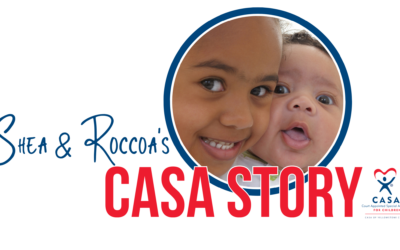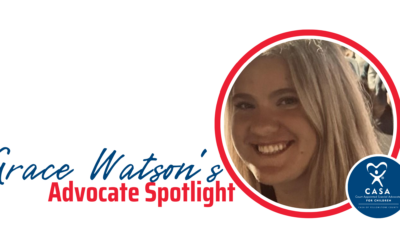One of the most talked about books in the CASA of Yellowstone County office over the past couple of years is The Deepest Well: Healing the Long-Term Effects of Childhood Adversity by Nadine Burke Harris, M.D. (First Mariner Books, 2018). This incredibly readable book, a quick 242 pages, describes the author’s journey from treating kids in San Francisco’s poorest neighborhood to speaking nationally about how trauma affects children of every socioeconomic level.

Photo Credit: Cottonbro
Where We’ve Come From
Burke Harris describes her background in public health and learning about the well referenced in the book’s title. In 1854 London, Dr. John Snow tracked down a cholera outbreak to a public well. All day long, physicians could treat the cholera that their patients were contracting from drinking contaminated water. But until the source of the outbreak, the well itself, was treated or rendered inaccessible to the community, people were just going to keep getting sick. As a public health doctor, Burke Harris compares the cholera outbreak to the astronomically high levels of poor health outcomes (obesity, autoimmune diseases, asthma, and learning and behavioral problems) she was seeing in the children of Bayview Hunters Point, a disadvantaged neighborhood of San Francisco.
At the time, research had already shown adversity as a social determinant of poor health outcomes, but Burke Harris was stumped as to adversity’s effects on physiology and biochemistry to drive those poor health outcomes. In The Deepest Well, she recounts her developing suspicion based on experiments with tadpoles (seriously, go read the book—it’s fascinating) that too many stress hormones too early in development would affect how brains do their jobs, even though in smaller amounts and later in life, those same stress hormones could spur adaptive development.

Meruyert Gonullu
Where We Are
Burke Harris’ suspicions were confirmed when she came across a study conducted in 1998 by Dr. Vincent Felitti, Dr. Robert Anda, and colleagues that linked 10 specific adverse childhood experiences (ACEs) to increased odds of negative adult health outcomes. (You can find a previous CASA of Yellowstone County blog about ACEs HERE.) The conclusion was that toxic stress, which is prolonged and/or extreme stress in childhood, affects the brain, which in turn affects the body through the immune system and hormonal development and even whether the brain can learn to turn off its flight/fight/freeze response once a threat is identified.

August de Richelieu
What We Can Do
Burke Harris remains upbeat and readable throughout her story, which is as much about the author fighting for the little guy with grit as it is about the public health crisis we’re facing in the form of ACEs. So don’t forget the subtitle, Healing the Long-Term Effects of Childhood Adversity. Healing and hope are woven throughout her work. Even though Montana is among the top 8 states with the highest ACE scores (of the 39 states and District of Columbia that conducted statewide studies prior to the book’s publication), we can all work together to help heal kids with a history of ACEs.
Supportive adults can act as a buffer between kids and stress, standing beside kids so that the stress they’re facing can shift from toxic to tolerable and their brains can learn that not every stressor demands a flight/fight/freeze response. This is where CASAs, caring adults who consistently show up for kids month after month, can make a big difference in building kids’ resiliency against stress as they move into their later years.
At the Center for Youth Wellness, a clinic Burke Harris established in Bayview Hunters Point, practical interventions in six areas “critical for healing” have made an impact on the dysregulated stress-response systems of kids with ACES. Those six areas are sleep, mental health, healthy relationships, exercise, nutrition and mindfulness. While Burke Harris is quick to point out the improvements are anecdotal and have not been subjected to the rigors of scientific studies, those six areas are helpful for any child—or adult, for that matter. The six areas can be focus areas for CASAs as they investigate kids’ wellbeing and advocate for their best interests.
The Deepest Well is available at the CASA office for current CASAs to check out and counts as three hours of in-service training.
For more information on how you can become a Court Appointed Special Advocate and be a supportive adult for a child in foster care, call CASA of Yellowstone County at (406) 259-1233 or email our development director at emily@yellowstonecasa.org.






